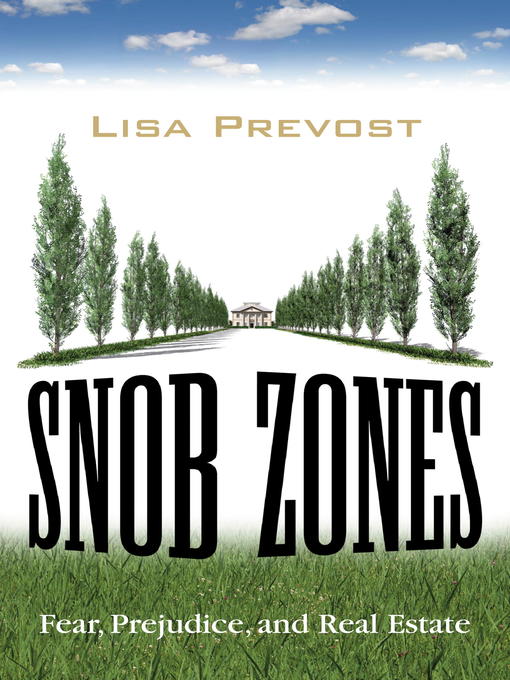
Snob Zones
Fear, Prejudice, and Real Estate
- اطلاعات
- نقد و بررسی
- دیدگاه کاربران
نقد و بررسی

January 7, 2013
This collection of comprehensively reported accounts of ugly local politics spawned by the absence of affordable housing in New England towns is an earnest but slow-moving examination of distasteful and often illegal behavior that takes the “not in my back yard” credo to its tawdry low point. Journalist Prevost tackles the abuses of restrictive zoning in communities from affluent Darien, Conn., to hardscrabble Milbridge, Maine, examining the “point at which controls on growth and development cross the line to unnecessary, purely self-interested exclusion.” She traces the effects of a century-old legal prejudice against high-density housing in New England, a densely settled region with little room for suburban sprawl. Some of the corrective measure included Massachusetts’s “anti-snob zoning law” supporting the construction of affordable housing, even in quaint villages that boast historic roots. From the exploits of savvy gadfly developers upending ritzy Connecticut suburbs with plans for high-density housing scattered amid posh colonial houses to an aging New Hampshire town struggling with deep-rooted prejudices, Prevost charts a national problem on a local level. While housing policy analysts and populists will nod in assent to her well-drawn critiques of the “fortress mentality” that makes local restrictions understandable from within and unconscionable from without, the focus is often so tight that even a sympathetic reader can lose interest. Agent: Lynn Johnston, Lynn Johnston Literary.

March 1, 2013
Real estate journalist Prevost makes a strong argument against restrictive zoning in elitist Northeastern communities. Though ordinances might seem a dry topic for a compelling book, a journalist who has written for the New York Times and the Boston Globe Magazine (where her reporting led to earlier versions of some of these chapters) makes the issue interesting on a number of levels, taking the argument beyond property values into the essential notion of what a community is and what might benefit it. Through reporting on elitist enclaves such as Roxbury and Darien in her home state of Connecticut, as well as other New England towns, Prevost shows that preservation is often a mask for prejudice and that communities are strangling themselves through legal and economic restrictions that prevent young families from moving to town and older retirees from staying there. They also serve as a buffer against racial and ethnic minorities, as well as economic classes, that the wealthy moved there to escape. "Today's advocates of large-lot zoning do not often go around talking about their desire to drive up prices and keep out the riff-raff," she writes, though that is the effect of what they're doing. "Roxbury was lacking in a vital resource: the people who keep rural towns running," she writes. In a region where well-to-do communities oppose condos where "affordable housing" might run $250,000 or much more, the book does an effective job demonstrating how restrictiveness hurts the communities themselves. Fleshing out the argument and making it more nuanced would mean treating the developers more as profit-seekers than social crusaders and presenting more of the perspective of those who live there (including prominent members of the supposedly liberal media elite). Moves the argument well past simple "not in my backyard" sentiments--though more perspectives and stronger storytelling might have made a good book even better.
COPYRIGHT(2013) Kirkus Reviews, ALL RIGHTS RESERVED.




دیدگاه کاربران